School is very nearly out for the summer holiday. Have you planned ahead?
Though the weather is far more pleasant than in the winter months, it's still important to be aware of the potential health risks of summer. Here's our quick guide on how to be best prepared for the school break.
August bank holiday GP closures
Like surgeries across the country, all Royal Primary Care GP surgeries will close on Monday 25 August for the August Bank Holiday.
But when we are closed, there is still help available if or when you need it:
- For quick access to health advice, you can call 111 or use the online NHS 111 service on the NHS website or on the NHS App;
- Derbyshire Urgent Treatment Centres are available from 8am to 8pm every day of the week, 365 days per year;
- Some community pharmacies may be open to help treat minor ailments (see opening times online);
- In a life-threatening emergency, call 999.
If you need to order your repeat prescriptions around this time, please give extra time to order to make sure you get your medicine on time and from your nearest pharmacy.
Think which service you need this summer
Keep A&E for life-threatening emergencies only.
If you're in need of urgent care, such as for a broken bone, sprain, minor cut or burn, you can visit one of the Derbyshire Urgent Treatment Centres. The nearest UTC to Chesterfield is Whitworth Hospital (Matlock), with others based in Buxton, Ripley, Ilkeston and Derby.
If you need medical advice, you can use the NHS 111 online service.
Stay sun safe
Better weather means more time in the outdoors for many, and it's always good to ensure you get enough vitamin D from the sun.
But equally it's vital to adequately protect yourself from the sun's more harmful elements; sunburn can increase the risk of getting one of the many types of skin cancer, and it doesn't just happen when you're on holiday abroad. It can happen in the UK, too, especially with heatwaves becoming more common.
When it's warm and sunny, make sure to follow these essential tips:
- Spend time in the shade between 11am and 3pm
- Cover up with suitable clothing and sunglasses
- Take extra care with younger children, who are more prone to burning
- Use at least factor 30 sunscreen
Dehydration, migraines and heatstroke are also common health issues caused by hot weather - you can find more tips on how to cope in hot weather on the NHS website.
Hay fever
Many people experience hay fever, with symptoms including sneezing, coughing and itchy eyes.
You can't cure hay fever, but there are ways you can ease your symptoms and medicine you can take to treat it.
Read more about hay fever on the NHS website for tips on how you can treat hay fever yourself.
You can also use antihistamine drops, tablets or nasal sprays to treat hay fever - find your local pharmacy to get your supply.
Measles: Is your child up-to-date on their immunisations?
Having our immunisations (vaccinations) is one of the most effective ways we can avoid catching nasty illnesses. With cases of measles on the rise in England, it's important to check if your child is up-to-date on their jabs.
Measles is an infection which can spread quickly and can potentially cause serious health issues - currently 1 in 5 children with measles require a hospital visit.
All children are recommended to receive two doses of the MMR (measles, mumps and rubella) vaccine, the first from age 1 and the second from 3 years and 4 months old.
If you think your child has missed any vaccinations, or if you think you need one, it is important that you get in touch with your GP surgery.
Find out more about the MMR (measles, mumps and rubella) vaccine on the NHS website.
Norovirus
It may be called the 'winter vomiting bug', but norovirus can spread all year round - and the NHS has warned that cases of the bug are higher than normal this summer.
Norovirus can be quite unpleasant, with symptoms typically consisting of vomiting and/or diarrhoea, which usually go away after two days. You could also experience high temperature, headache, tummy pain or aches and pains.
If you or your child get norovirus, you can usually treat it at home. Getting plenty of rest, drinking lots of fluids and avoiding fatty or spicy foods can help treat symptoms, while washing your hands regularly and avoiding contact with others can prevent spreading the virus.
Find more advice about norovirus and when to seek medical attention on the NHS website.
Pharmacy First - seven common conditions your pharmacist can help with
If you're suffering from a mild illness, such as a cough or sore throat, need to treat insect bites or want advice on other health-related issues, your community pharmacy should be your first port of call - it'll be quicker and easier than waiting to see a GP, too.
With NHS Pharmacy First, your pharmacist can also directly manage and treat these seven common conditions, without needing to see a GP:
- Impetigo (age 1 and over)
- Shingles (age 18 and over)
- Infected insect bites (age 1 and over)
- Sinusitis (age 12 and over)
- Sore throat (age 5 and over)
- Uncomplicated urinary tract infections (UTIs) (women, age 16-64)
- Acute otitis media (middle ear infection) (age 1-17)
Have you stocked up on First Aid supplies?
Whether on your adventures or relaxing at home, having a fully stocked First Aid kit can be the difference in an emergency when you need to act fast. You should ideally have a First Aid kit handy in your home and in your car, if you have one.
Your local pharmacy will have everything you need for your First Aid kit, so that you're fully stocked for the holidays ahead. If you're not sure what you need in your First Aid kit, you can use this online First Aid kit checklist from St. John Ambulance.
Find your local pharmacy to get sorted before school's out.
Holiday clubs (for families receiving free school meals) - Derbyshire County Council
Money might be tight for many, and paying for activities during the school holidays can be an expensive ordeal for parents and guardians.
That's why Derbyshire County Council's popular holiday activities club – ‘It's About Me Derbyshire’ - is back for the summer school holidays, and it's a great way to keep the children both entertained and healthy with plenty of active hours.
The programme is funded by the Department for Education and is available to families who receive benefit-related free school meals - parents will need to use their child's IAM/ FSM/ HAF code to book.
Find out more and check availability by visiting the It's About Me website.


